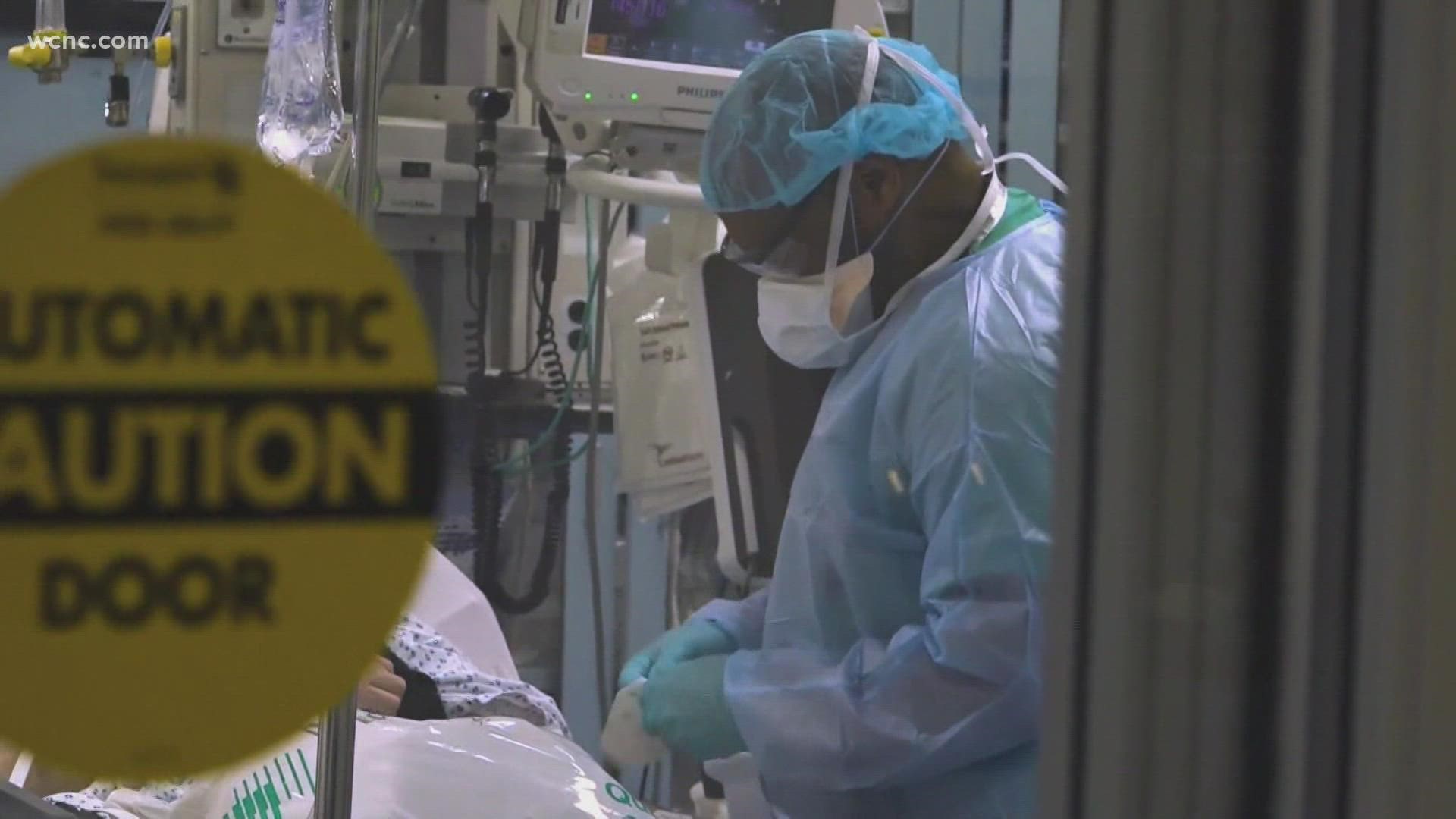CHARLOTTE, N.C. — Mecklenburg County health officials and leaders from Charlotte-based health care systems gave an update on COVID-19 testing clinics and at-home kit accessibility Thursday.
Health Director Gibbie Harris and Deputy Health Director Dr. Raynard Washington held a joint news conference Thursday afternoon to discuss how residents can get tested as the omicron variant drives a surge in new cases in North Carolina. Harris and Washington were joined by Dr. Sid Fletcher from Novant Health, as well as Atrium Health's Dr. Jim Hunter for the briefing.
Harris said there is not a plan to delay the start of school amid rising COVID-19 cases in Charlotte.
"We do want to do everything we can to help our children stay in school," she said. "And for us to have enough teachers and staffing support in our schools to be able to provide what our students need."
Washington said health officials are currently working to provide more testing supplies.
"We have a huge availability of testing, it's just this is unprecedented demand," he said. "We’re going to do what we can to try and alleviate some of that demand and provide some more supply but the reality is there are very tight resources at this time.”
Many people are rushing to get tested right after hearing they've been exposed. However, doctors said you may want to wait.
"The recommendation would actually be to wait several days -- as many as five days before you actually test the first time," Washington said.
Fully vaccinated people should get a COVID-19 test five to seven days after their last exposure, according to the CDC.
Those who are not vaccinated should get a test immediately after exposure, according to top health officials at the CDC.
If someone who is not vaccinated tests negative, that person should get a second test five to seven days later or as soon as that person gets symptoms, according to the CDC guidance.
"You want to wait at least five days before you get tested to give your body a chance to -- if you are going to develop an infection -- for it to develop," Washington added.
Health leaders are also urging people to think twice about their New Year's Eve plans and keep gatherings small.
"As midnight hits, they have a tendency to hug and kiss and do all of those things to ring in the new year. Well, this is not the year to do that," Harris explained. "This is a year to have a bit more caution so that in future years, we’re all still around to celebrate with each other."
On Tuesday, North Carolina health officials announced over 9,300 new cases with 17.3% of all tests coming back positive in Wednesday's report. Over 2,100 people are hospitalized statewide.
In a statement, the health department said StarMed Healthcare is expected to set up a mobile testing unit in Uptown Charlotte this week. Meanwhile, the county is working to restock libraries and health department offices with rapid at-home test kits once they're made available.
Mecklenburg County health leaders are still encouraging everyone to get vaccinated and boosted as soon as possible and to stay home if possible. Any person who is experiencing COVID-19 symptoms is urged to get tested and to wear masks indoors.
On Wednesday, Courtney Cortes, the director of nursing for emergency services at Novant Presbyterian, said the ER is the busiest it's been in the last two years. Cortes said at any time, 12 to 15 people are waiting for a COVID-19 test, with some patients waiting "double-digit hours" to be seen.
WCNC Charlotte is part of seven major media companies and other local institutions reporting on and engaging the community around the problems and solutions as they relate to the COVID-19 pandemic. It is a project of the Charlotte Journalism Collaborative, which is supported by the Local Media Project, an initiative launched by the Solutions Journalism Network with support from the Knight Foundation to strengthen and reinvigorate local media ecosystems. See all of our reporting at charlottejournalism.org.

